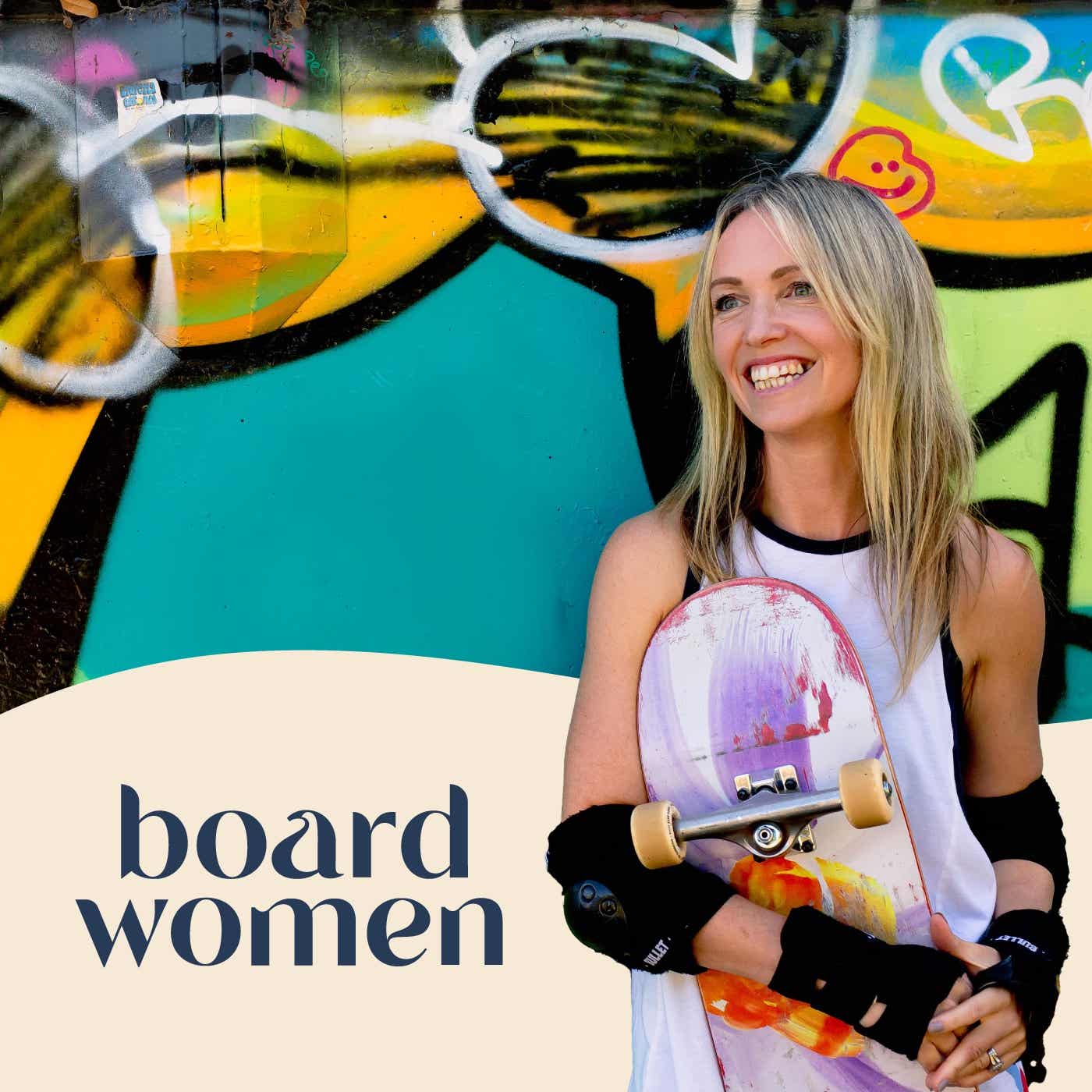
On The Outside
We need to talk about the outdoors. Not just the epic stories, but the important news, the big events and the social issues that permeate the whole of the outdoors. On The Outside is for everyone who spends their leisure time outdoors in the UK. It helps you engage in the wider outdoor community through the conversations of our diverse panel. We are enthusiasts and experts from a range of outdoors activities, and we're talking about the news stories that matter to us - from specific sports news, to headline stories about our countryside, and the viral posts that capture outdoors culture - all in a jargon and judgement free way! On The Outside is part of the Tremula Network.
On The Outside
Podcasts, outdoors and interviewing as an ally (with Rob Darfi from The Outdoors Adventure Podcast)
This episode was inspired by the idea of 'interviewing as an ally'.
Robert Darfi is another podcasters who describes himself as the "least diverse person around," and in the episode, Fran flips the microphone on him to explore how podcasts can be a powerful tool for activism...
LINKS:
- Listen to ‘The Outdoors Adventure Podcast’ here: https://pod.link/1660116904
- Listen to ‘Outside/In’ here: https://pod.link/1061222770
- Find the other podcasts in the Tremula Network: tremula.network/podcasts
- Read ‘How To Interview as an Ally’ on All The Elements: Blog: How to interview as an ally — All The Elements
- Find out more about The Outdoors Podcast Club: The Outdoors Podcast Club
- Read Fran’s article ‘Footsteps’ exploring her Polish heritage was published in Issue 11 of BASE magazine: base-mag.com/free-adventure-magazine/
On The Outside is part of the Tremula Network, sharing unheard stories of adventure, nature and the outdoors. Find out more and listen to our other shows at tremula.network.
IDENT: This podcast is part of the Tremula Network, adventure and outdoor podcasts off the beaten track. To find out more, head to tremula.network or find us on socials.
FRAN (00:00):
Hello, it's Fran here, and I think it's worth saying that this episode is a slight departure from the normal on the outside episode. It was inspired by a session I ran for the Outdoors Podcast club called How to Interview as an Ally, and I'm actually speaking to another podcaster. I think the conversation as a whole is really interesting and we really do get into how to have conversations about diversity in the outdoors. I really enjoyed myself and I hope that you do too.
[MUSIC starts - ON THE OUTSIDE theme - Bassbeat by Alex Norton: "Funky and upbeat, jangling guitars, a fat bassline and a full horn section create the perfect soundtrack to a late summer block party."]
FRAN (00:42):
Hello and welcome to On the Outside the podcast that shares diverse views on what is happening outdoors. Today I am talking to another podcaster and we're going to be talking a little bit about his journey into podcasting. His name is dfi. I'm saying that right,
ROB (01:10):
Robert.
FRAN (01:11):
Robert. Robert. You know, I know someone called Albert, but I've never heard Robert before. Is that a common name
ROB (01:22):
In your culture? Yeah, yeah. Very common. Very common.
FRAN (01:26):
Oh, okay,
ROB (01:27):
Robert. Okay. My dad's Italian and he named me after Roberto Baggio. So there could be a bit of a crossover from the Italian, Roberto, maybe. Oh,
FRAN (01:37):
Okay. Roberto, I've heard a little bit more actually. So yeah, maybe that's it. Maybe that's how I remember it. Okay,
ROB (01:44):
Here we go.
FRAN (01:46):
Robert. Robert Dhy
ROB (01:49):
Better.
FRAN (01:50):
Thank you. So Robert Dhy is here today to talk a bit about podcasting because he also has a podcast, the Outdoors Adventure Podcast, and Robert is also part of the outdoor podcast club that I run as part of Tremor Network. So I thought it'd be nice to get a little bit of an idea of how he does his podcasting and specifically because he has described himself as the least diverse person around. So we'll go into that a little bit more, but Robert, how did you get into the outdoors? Can you tell us a little bit about that?
ROB (02:31):
Yeah, I can. Well, thank you for having me on the podcast. I think before we started recording, I said it's the first time on this side of the mic, so it's completely different for me. I'm normally the one in your shoes, so thank you for having me on. I love talking about the outdoors. How did I get into the outdoors? Oh man, how'd you answer that? A lot of people that I talk to on my podcast, it's sort of a bit of a step change and then there seems to be that key moment where it cements your love for the outdoors. Now I grew up, well, I've grown up in a lot of different places, which we can come onto a little bit later. But the main area that I grew up was East Anglia. Flattered the Pancake, not necessarily known for the outdoors, but I remember as a child, my childhood was on my bike, going to the woods, spending days on end. I think parents were just generally less worried then,
FRAN (03:23):
Sorry, the woods. So you're aware of the outdoors from fairly early on?
ROB (03:30):
Of course. Yeah. Yeah. We had access to the outdoors when I was a kid and well, it wasn't mountains or dramatic environments like that. So we would go to the woods, we'd spend a couple of days in tents, me and my mates, 13, 14 years old, and just muck about any trips to the late district, things like that. And then I moved up to Manchester for university. When I come up to Manchester, I realised I was quite close to places like the Peak District and the Lake District in Sia and started spreading my wings on day trips, and I just fell in love, fell in love with everything outdoorsy. 21 years on, I've completed the Wa Wrights, I've climbed numerous, I've climbed various mountains abroad into kayaking, paddle boarding route, long distance, short distance, get me outdoors. That's where I love it.
FRAN (04:26):
Yeah, fantastic. And thank you for telling us that. And is that a fairly common way of getting into the outdoors for someone of your background, would you say?
ROB (04:39):
Yeah, I would say so. Yeah. I think a lot of people that I speak to perhaps had a bit more of an outdoorsy background from childhood. Perhaps they're born into a more outdoorsy family or an area synonymous with the outdoors a bit more than East Anglia. But yeah, I think a lot of people generally of my age and culture and yeah.
FRAN (05:02):
How did your family feel about that when you started doing a bit more of the adventurous stuff, the mountain climbing and things? What was their reaction like?
ROB (05:12):
Yeah, I mean they were quite supportive. Obviously mom and dad worry a little bit when the thing is, my mom and dad live a long way away. I don't live anywhere near them, so I don't really speak to them on a day-to-day basis or see them every regularly. So I just take myself off to Scotland for a week's backpacking out of Klock leaving and put ufo and then I'd tell them when I come back. Yeah, interesting. They couldn't worry too much about me.
FRAN (05:38):
Interesting.
ROB (05:39):
But they're generally supportive.
FRAN (05:41):
And how about now, so I know you're a family man, so what does your husband think about you going out? Does he let you do that?
ROB (05:49):
Yeah, well I'm married to my wife.
FRAN (05:52):
Oh, sorry. Is that okay? Are you okay to talk about? It's fine, yeah,
ROB (05:58):
It's fine. Okay. Yeah, yeah, absolutely fine. Yeah, I'm happy to, my wife and she, well, she's not very outdoorsy at all, I'll be completely honest. But she knew what I was like when I got with her. She's been very supportive of me, my passion and my love outdoors and podcasting and everything that I want to do with my life, hence probably the reason why I married her.
FRAN (06:21):
Yeah, fantastic. Oh, thank you. Thank you. And I just have to say that I really admire what you're doing. I think it is really inspirational. You're just putting yourself out there. You are sharing your story so that people like you can see you out there and doing the outdoors and all of that kind of stuff. I think you are just really brave for putting yourself out there essentially. And how does that feel being such somebody that other people can look up to, little boys out there who can say, that could be me one day. What does that feel like?
ROB (07:07):
I mean, it don't feel that way whatsoever. I don't feel brave, I don't feel inspirational. I feel like I wanted to start getting onto the podcast really. I mean, I wanted to start the podcast because it does a bit of a mix of everything. And so that was the reason why I started the podcast. But then you do realise after a few months, actually I've got a bit of an audience growing here and perhaps this is inspirational to other people and sharing the outdoors with other people perhaps does inspire them. And I have had a few messages from people saying it has, and at that point it gives you a nice, warm, glowy, loving feeling. But yeah, I don't see myself as inspirational. I'm just someone who loves the outdoors and have tied that in with talking about it a bit more regularly.
FRAN (07:56):
Yeah, interesting, interesting. I mean, I find you inspirational, so I hope you take that away from today that someone like me finds you inspirational.
ROB (08:06):
Thank you. I will.
FRAN (08:11):
Yes. I mean there's something that I really want to know, and we'll go into this a little bit. I think you have spoken about this elsewhere, but I want to hear it from myself. So I'll ask you again. What kind of barriers have you found? You said you got into the outdoors quite late. Why do you think that was?
ROB (08:34):
Well, I don't know when I was a child, I dunno, maybe living in East Anglia, it's not the most outdoorsy place. You've not got mountains on your doorsteps, perhaps it's not inspirational, but I was talking to someone the other week about what does the outdoors mean? The outdoors can be walking out your front door and enjoying a field somewhere. It doesn't have to be an inspiring mountain view or a glacial view or the jungle or the desert or anything dramatic like that. Even if you live in a city, you've got some beautiful parks. So in terms of barriers, it's not really an issue for someone like me who has a car lives next to a motorway who can afford to put petrol in it and has access to some very beautiful parts of the northwest of England within an hour's drive in my house.
FRAN (09:32):
Okay, thank you. That does surprise me. And I have to say, when I think of the outdoors, I do think of those mountains and pinnacles. So that's an interesting way to think about it. Thank you.
ROB (09:44):
Yeah,
FRAN (09:46):
I think that's probably enough of that side of things,
[BASSBEATS IDENT]
Robert. We'll get into the proper interview now. Thank you. Thank you so much for that. I enjoyed that far too much I have to say.
ROB (10:03):
Yeah, I like that. It was a great idea.
FRAN (10:07):
But how did that make you feel in terms of getting some of those questions in that way? There's obviously a little bit of laughing and that kind of thing.
ROB (10:15):
I tried to stop. I'm a bit of a giggler anyway, so I tried to stop. I know you sort of want to take it seriously really, but some of the questions just seemed ludicrous. They just were completely irrelevant. Yeah, I mean the thing is, when you talk about diverse issues, you do talk about barriers quite a lot. I think it is more relevant to other people, but myself, some of those questions just seem weird, unusual. I didn't know how to answer them because it's not been an issue that anyone's ever raised with me. It's not been an issue that I've never thought of. And because of that, actually it makes me realise perhaps I've got a lot to learn when it comes to these issues in the outdoors. I'd never considered a lot of those questions.
FRAN (11:11):
And it is really interesting because I think that if you've never been asked that kind of thing, you don't necessarily have to think about it. That is something which I think if we do have any privileges within the outdoors, it is worth stopping and thinking about. I have to say thank you for bringing up the idea of the car driving because that's one for me that I'm quite passionate about. I don't drive, I have epilepsy. And that is one of the main reasons that I don't drive and that the second reason I don't drive is because I lived in London for so long and you do not drive in London, you do not need to. So now that I don't live in London in particular, I'm noticing how difficult it can be outside of London, outside of the big cities without a car. And some of the journeys that I've done to try and get to the outdoors, I think there was one trying to get up to Scotland where I was just like, it literally took me a whole day of five trains and two buses and then a taxi at the end anyway, and this kind of thing.
(12:19)
So yeah, bringing up that is obviously something that I appreciate that you do think about. But the other thing that struck me was how your answers weren't necessarily that different to some of the people that we have on the podcast. And I think it is worth pointing out that no matter what the background is, there are cultural aspects which might make it more likely that you have barriers. There are physical and health aspects that make it more likely, but it doesn't necessarily mean that they're the same barriers for everyone within those demographics as it were. So I think it's like, yeah, it's really interesting to hear those answers not being necessarily that different from some people that know.
ROB (13:07):
Yeah, yeah, absolutely. And I think the thing is also I come into this from I know of has a fairly privileged background. I was born into an area of north London or north of London, a nice little commuter town into a 2.4 family being white, middle class a male. I do come into this from, I do know my life has certain privileges, particularly being in the UK as well in the position that I'm in. But at the same time I mentioned in one of those funny questions that I've moved around quite a lot and I've lived in 22 different places. I counted them 22, played different places across the uk. I'm only 38, so although my voice might get blurred into a lot of others, I think it gives different perspective on diverse issues. Lived in where I live now is little village in the northwest of England, not particularly diverse, but 10 years ago I was living in Rush home in Manchester, just incredible diversity and living amongst every type of food restaurant you can imagine, every type of nationality.
(14:24)
And it was a fantastic place to live. And I lived there for a few years and really enjoyed it. And what that means is, although I might be coming to the diversity discussion from a fairly privileged position, it brings a different aspect and I think it's all of our responsibilities to face these issues, face diversity issues, which there are and inclusivity issues, which there are. And even if someone from a fairly privileged background come into it with their own views, I still face that responsibility, which I think a lot of people would find unusual for someone in my position.
FRAN (15:06):
And I have to say that that resonates quite a lot with me in terms of the, I haven't moved around as much as you by any stretch of the imagination, but I have lived in a couple of different places with my background of the name Roski is not English as well and that kind of thing, which has its own aspects, which I don't talk about on the podcast, but I have written about a little bit. So I'll pop that link into the show notes. And I think the fact that you are willing to be talking about diversity, like you say, it's so much more than some people do. Like if you are somebody that feels very comfortable outdoors and has a lot of people to look up to in that space as it were, a lot of people that you can go, that person's like me, you do have the choice to ignore it.
(16:01)
And that's true with a lot of politics and a lot of other aspects. If you have the choice to ignore it, a lot of people do ignore it and don't talk about it. So yeah, I think those are some really good points to bring up. Speaking then about your podcast, one of the main reasons I have you on is that we've done a little bit of a podcast swap and you very kindly shared one of on the outside episodes on your podcast feed. But as you say, you're starting to get a little bit of a following, you notice that people are listening to you. How do you find that? How do you think about that in terms of bringing on guests? How do you find guests and what kind of thoughts are you thinking about in terms of making sure that you are being representative and using that space that you do have to talk about it within your own space as well?
ROB (16:58):
Yeah, sure. So I'll backtrack a little bit actually to a point that you made that you were just talking about in terms of people that I've got to look up to in the outdoors. And that really resonates with me because the thing is, if I go on an average walk in the late district, for example, just pick my favourite area of the UK and I go and climb up hell ve or go and climb up scarf up I, I'll go and clima out scar Pi, one of the main roots in the lake district, main mountains in the Lake district. I'll spend all day looking at people who look like me. And it's something I didn't think about ever really until I started the podcast. And I started the podcast fairly recently. And then when you start a podcasts, you get more into the social media world of things.
(17:42)
I joined a lot more outdoors groups and in one of the outdoors groups, a group called the Muslim hikers had shared one of the posts that they'd done recently. And underneath this photos that they shared from one of their recent hikes, there was people saying, why do you need a group like this? Is it not inclusive? And having those sort stereotypical views and you look at the people who are making those comments, and it's people again like me, in all honesty, the white male will aged a bit now in minded perhaps in their views and perhaps they've had a privileged background and they can perhaps ignore the issues that are going on. And so you sort of put those together and you think actually when I go into the outdoors, I don't see much diversity. And a common theme that we talk about on my podcast is the mental health benefits of the outdoors.
(18:42)
And then you sort of put all of it together and you think actually the mental health benefits of the outdoors are massive. And I see them myself, I don't really struggle with my mental health, but if I do, all I need to do is go for a walk and it's like a little reset switch. And then you think, well actually, if I don't see much diversity in the outdoors, there's people out there who are like me, who look like me, who have these views that they're posting on social media. Couple that with the fact that there are huge mental health benefits and physical health benefits to getting outdoors, tie all those three together. And you think actually we do have an issue with diversity in the outdoors and the benefits of getting everyone outdoors aren't being felt by certain sections of our community. And then you sit there and think, hang on a minute, I've got a microphone in my hand. My relationship's growing. Thousands of people are listening to my voice. Hang on a minute, perhaps I can make a difference. And that was the really powerful moment for me putting in the outdoors diversity podcasting together. It was a really powerful moment when I sort of sat there and thought, you know what? Actually I've always thought throughout the first 37, 38 years of my life, what can I do to make a difference? I'm inclusive.
(20:04)
I have no, I don't see anyone as being any different to me. I don't understand how you can, I don't have any inkling of a race view in my life, but perhaps people might think I do because of my background and perhaps a lot of people think because of my background I do, which I understand. But what I do have is I have a microphone and a listenership and a responsibility to look at the issues, face the issues, talk about the issues, do what I can to raise those issues to help get more people into the outdoors, which was the inspiration for starting podcast in the first place. It was all about inspiring people, getting into the outdoors. And then you talk about guests, and I must admit for the first two or three months, I didn't really put everything together. And then that sort of light bulb moment happens where I put all this stuff together, I realised I've got an audience, well, I've got a microphone and I've got a responsibility to talk about these issues.
(21:10)
And then you start thinking about actually perhaps I can get some not more interesting, but more diverse guests and people with more diverse views perhaps, rather than talking about how did you get into the outdoors, how did you start your mountain leading business? Well, how do we face these issues? And a lot of the interviews I've done in the last three or four months I would say, have really been focused around those diversity issues. And it's brought an entirely new light to the podcast, which I've really enjoyed talking about. A bit of a random long waffling response. I know, but there's
FRAN (21:49):
So much to it. But it's an honest response. And I think that's important because one thing you said though, which I feel like is worth picking up on that I know some people listening would pick up on as well, is that aspect of I don't see anybody differently. And for lack of a better word, the colorblindness and that kind of thing, which I think is from my own perspective when talking about race and that kind of thing, it was initially, well, I see everyone the same, everyone has the same, I'm losing words now, but hopefully that makes sense to people that are listening. But then you do get into it and you do step into the space where people are talking about their own backgrounds, people have their own different areas of activism that they're working on. And with all the elements in particular, it is bringing together people from different areas of diversity.
(22:54)
And you realise that there are differences and that's great, but there are differences and that's also not great because of so many different socioeconomic things, political things, cultural things, et cetera, et cetera. And I think that is, I love the fact that you talk about podcasting being the way that you're starting to step into this conversation because that's exactly what podcasting means to me. I think that's the best thing about podcasting is that you get to have proper conversations with people you wouldn't have conversations with. It's a good excuse to just get in touch with random people and go from there. So I love that you've pinpointed podcasting as the of that for you.
ROB (23:46):
And I've got to say, as somebody who didn't really face these issues and I knew they were there, but for someone who had the club blindness, I'll admit for many years, it feels a little bit uncomfortable sometimes talking about it because at the end of the day, someone, I dunno if someone out there and it's about staying humble, I think it's not for me to come into this conversation after so many years and pretend I know everything. I really don't. But what I do know is I know I want more equality and a more equal world where everyone feels welcome and happy. Really, there's no more challenging than that really, but obviously there's huge challenges to get there. Yeah, like I said, it's about staying humble. I do feel a little bit uncomfortable sometimes talking about it. I don't know if somebody who's in a really challenging environment might sit there and go, well actually what do you know? You might have lived in diverse areas, but you've not had the same challenges as me, and I know I haven't. How can I talk about diversity? I've not had the same experiences. So yeah, it's a really challenging balance to get, I think sometimes about preaching and being humble and being knowledgeable to the extent that I can only be, I can only be knowledgeable to the extent of my own experiences. My experiences aren't the same as many, many others for many different cultures.
FRAN (25:21):
Yeah, thank you. And I think in the essence of the podcast and the essence of judgement is the essence of judgement . It's the opposite of what the essence of the podcast is. The essence of on the outside was that idea of growing together and learning from each other. Would you be open for people to give you feedback on this conversation, send things either positively negative and send those over to you and hopefully
ROB (25:47):
We'll get some
FRAN (25:48):
Responses that are kind of like we can share on the podcast and see what that kind of feels like for other people listening.
ROB (25:58):
No, I love that. And the thing is p as brutal as you like, because in my day job, I'm a sales director, I sell soft drinks to pub bars, wholesalers, that sort of thing. And sometimes if I know someone wants to give me a bit of feedback about one of my products and they're not tiptoeing around the edges, I say this, and I say this to your listeners too, I was a football referee for 18 years. It is impossible to offend me. It is impossible when you've been a football referee and I worked to a sort of semiprofessional level, so up to 3000 people watching at a time, and I've disallowed a 90th minute e equaliser for offside. You should hear the things people say to me,
FRAN (26:43):
And
ROB (26:43):
I think you can't offend me, so be as brutal as you like.
FRAN (26:46):
Yeah, I think I would open that up to myself as well. I have not been a football referee. I probably will take it to heart a little bit more, but I think that that's all part of it. So yeah, thank you. We used to do very clear call to actions and things that we were going to take away from each conversation and ask listeners to take away, I suppose. What would be the one thing that you are going to take away from this conversation to make yourself better at diversity, equity, inclusion? What tangible thing do you think you can do?
ROB (27:25):
That's a really interesting question. I think what the conversation today with yourself has actually made me realise, it's made me realise that actually a, although I see my podcast is a platform to talk about these issues. We don't talk about 'em like this and we don't talk about them as forthright and in your faces as we sort of turn around the edge a little bit and realise there's issues that we need talk about talking about. And perhaps this made me realise that I need educating more on diversity issues. Yeah, I dunno if I can say much more than that. Really
FRAN (28:10):
In general, and that is something that I kind of talked about in the podcast club with the interviewers and ally that I did with all the elements is that that was the number one point from people was like, do your education before you have the conversations with people, but don't let it stop you from having those conversations. I think it's more important to have them. For sure. Can you tell our listeners where they can find you?
ROB (28:44):
Absolutely. So my podcast is called the Outdoors Adventure Podcast. I'm not really big on social media, so I can't really send people to, there is a Facebook page if you search for it, there is a TikTok page. I don't really push them. It was something we were talking about prerecording, by the way. I don't really push them. So I would just say the best place to go would be onto your whichever app you use for your podcast and just search for the Outdoors Adventure podcast and you'll find me there.
FRAN (29:13):
Beautiful. And in the essence of podcasts, I will put it into the show notes. And yeah, thank you very much for taking the time being open and hopefully this has been a useful conversation listeners and also for both of us as well.
ROB (29:30):
Lovely. Thank you very much for having me.
[BASSBEATS IDENT]
FRAN (29:36):
So there you have it. As I said at the start, I am hopeful that you enjoyed that conversation and that the slight satire to it worked. I'm semi braced for this episode to be a bit divisive and as we said in the interview, please do get in touch and tell us your thoughts on this. You can email on the outside pod@gmail.com or if you want to send a voice note or message, you can do that on WhatsApp. We have a number that is dedicated on the outside, and that is 0 7 8 8 3 9 0 5 3 3 6. I will not be answering messages until the new year now. But if there is something that you would like to say, send it over and I'll get back to you. Then if there are some interesting responses, I will of course share in a future episode as well. Speaking of future episodes, now that you have heard what a bad interview sounds like, I'm going to start using this podcast feed to share some good interviews.
(30:40)
So for the next couple of months, you'll get to learn a bit more about some of the previous guests we've had on the podcast. So watch out for when those drop in the new year. In the meantime, if you're interested in checking out Rob's podcast, he has been doing a bit of an adventure advent in December by sharing clips from previous episodes. It's a really good way of listening to snippets and deciding if you like the show. So do go and check that out. There are of course, the other shows in Remer Network. You can listen to Nikki Bass from The Everyday Adventure Podcast has just finished her sixth season and we've just finished the most recent season of Wild for Scotland that had a focus on Scottish waters. So Kathy has been talking about things like Seagrass Meadows snorkelling. It's been a really good season, so that's a great one to go to as well.
(31:37)
The last recommendation I have for the moment is Outside slash in. That is a US-based podcast, but they do some really nice episodes around this time of year called Thriving Winter. So they're short little episodes about different ways that you can enjoy cooler seasons, so that's worth listening to too.
This episode of On the Outside was produced, hosted, and edited by me, Francesca Turauskis
[ON THE OUTSIDE MUSIC STARTS]
On the Outside Artwork is created by Sophie Nolan. Music is Bass Beats by Alex Norton. Anesu Matanda Mambingo is our social media assistant, and you have been our listener. Thank you very much for listening.
[END]
Podcasts we love
Check out these other fine podcasts recommended by us, not an algorithm.
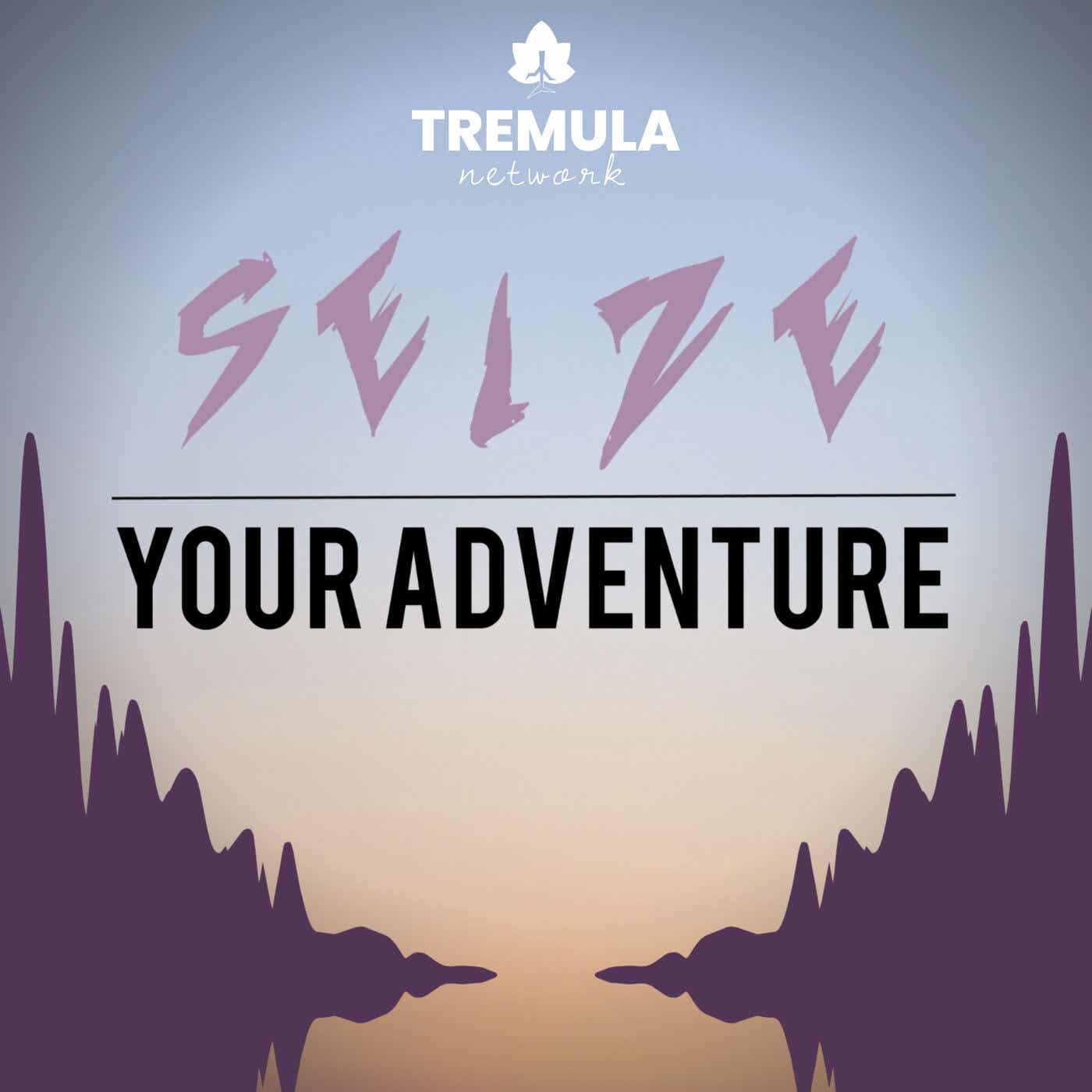
Seize Your Adventure
Adventure sports, travel and outdoor living with epilepsy
Wild for Scotland Podcast
Tremula Network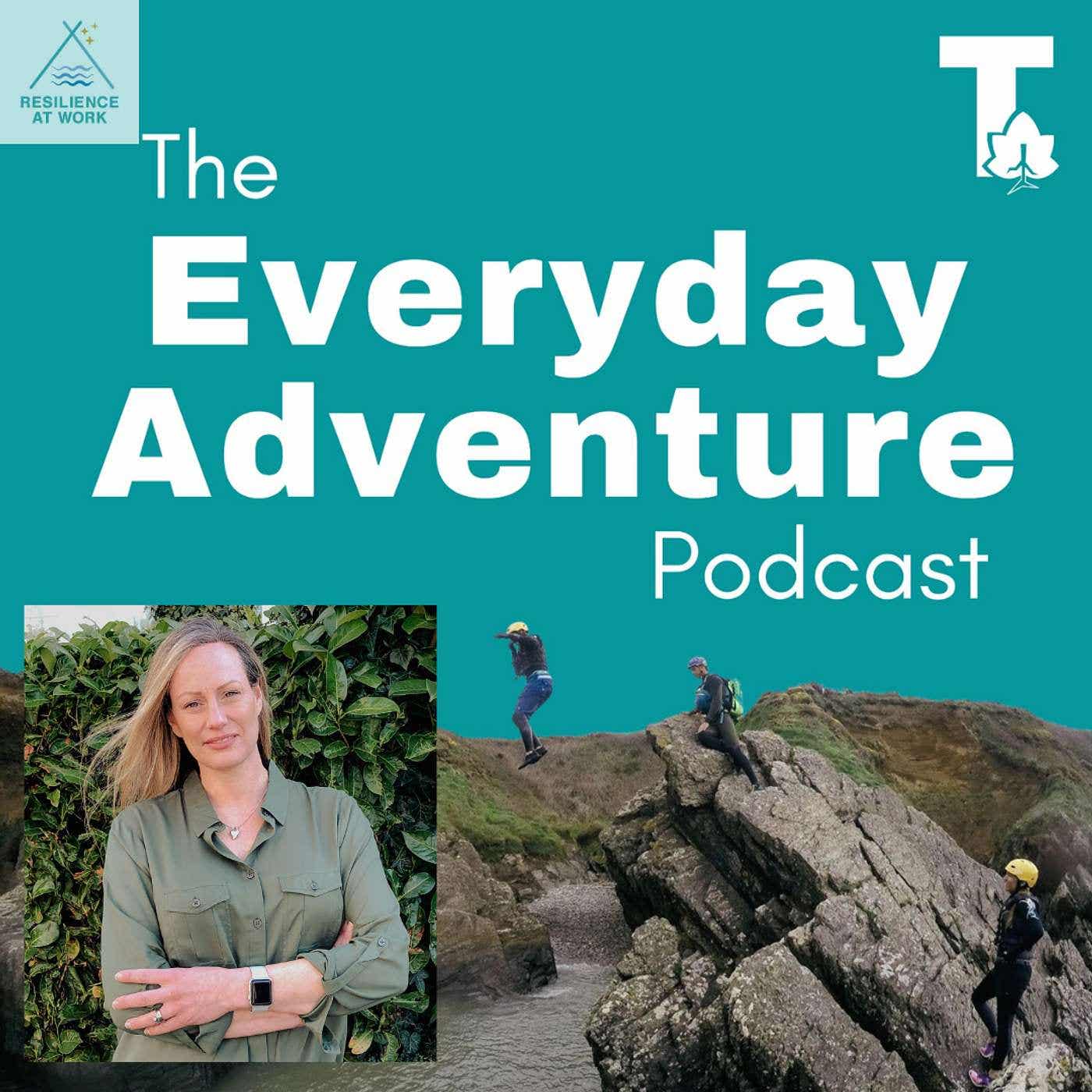
The Everyday Adventure Podcast
Inspiration and ideas to live more adventurously in your daily life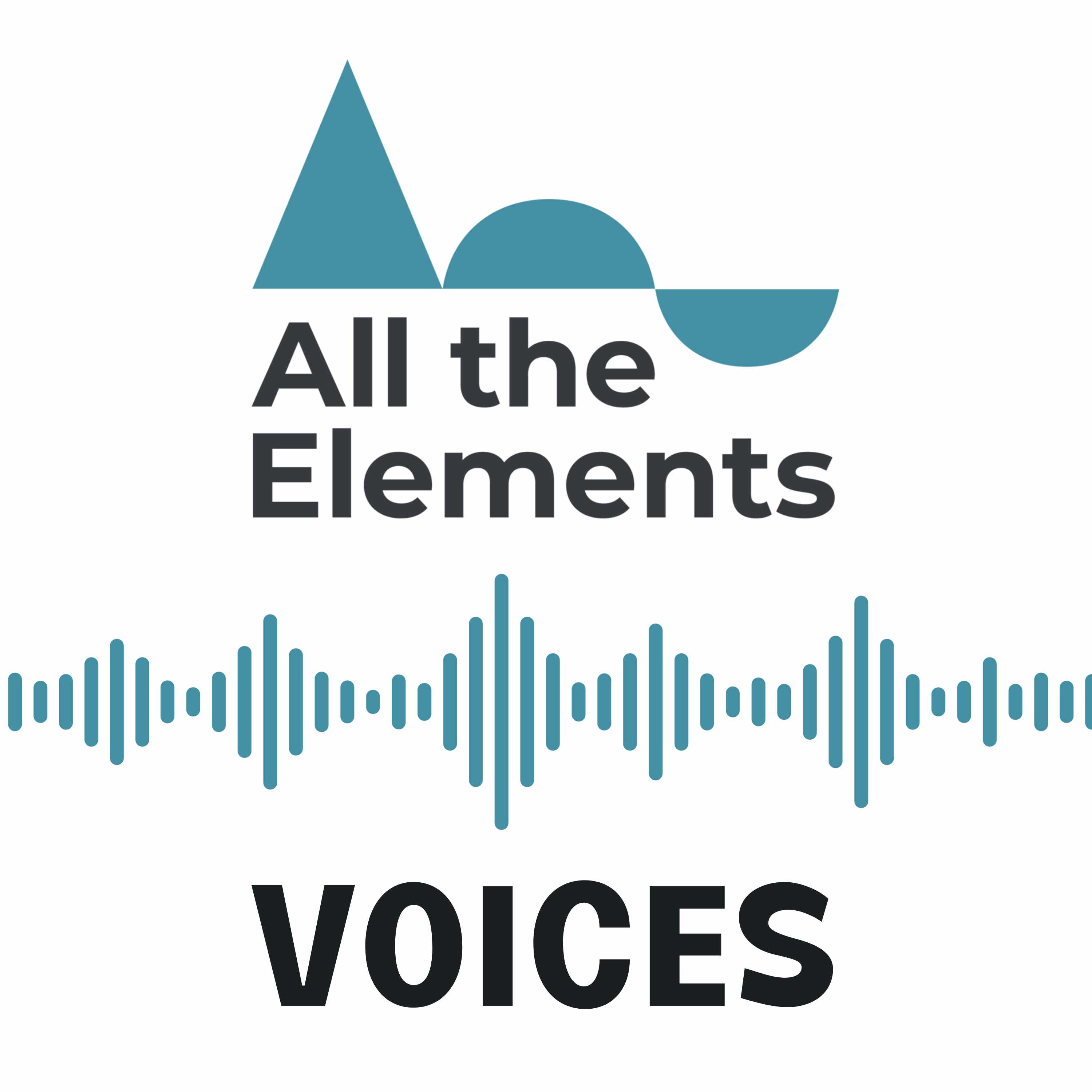
All The Elements Voices
All The Elements CIC
Black Earth Podcast
Black Earth Podcast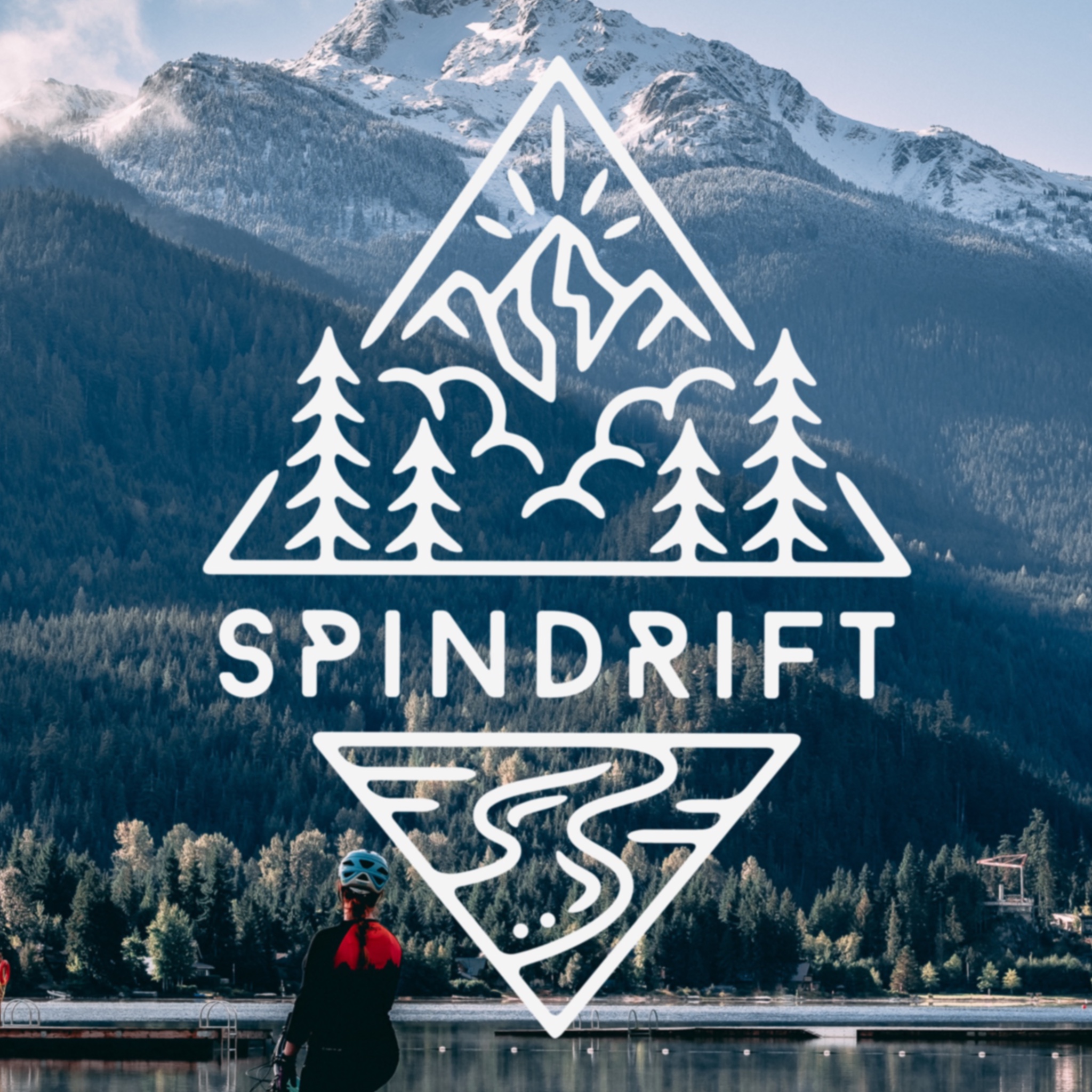
Spindrift
Spindrift / Aoife GlassWildlife Matters The Podcast
Nigel Palmer
The Colour of Chalk
We See You Now
Queer Out Here
Queer Out Here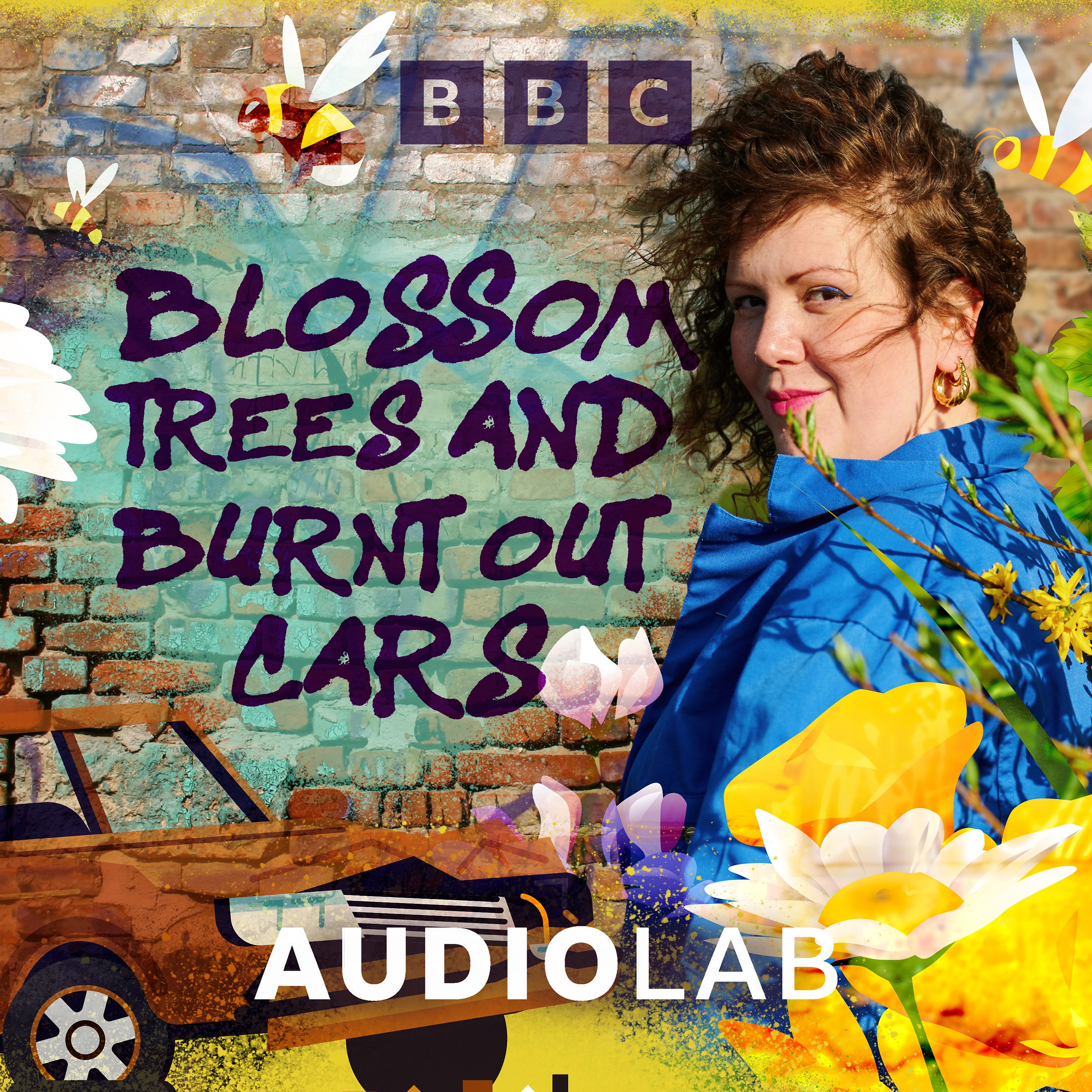
Blossom Trees and Burnt Out Cars
BBC Sounds
Nature Bantz
Go Jauntly
Not Your Typical Climber
Not Your Typical Climber
The Earth Sea Love Podcast
Sheree Mack